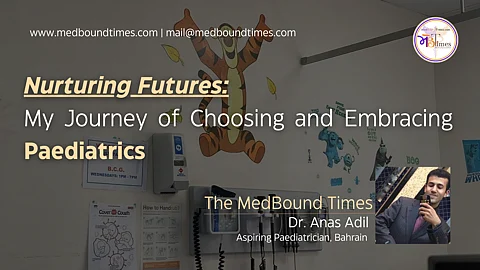

When I came to the 4th year of medical school and we had our first paediatrics clinical rotation, I was super excited to go to the hospital, see the kid's nursery, and learn how to examine a baby. Even before starting medical school, my love for children had always been evident in my deep attachment to my siblings and cousins. Whenever a new baby was born in my family, my first instinct was to hold them and play with them. I know it looks easy to just lift a baby, but trust me it's very hard. It may look simple, but it is not. There is a proper way of holding a baby in your arms. Also, sometimes even when done correctly, the baby may still cry. It is the baby who decides who can soothe them.
I remember one particular case that has stayed with me from my paediatrics clinical rotation. It was about a small boy who was infected with pneumonia. He struggled to breathe, and I could see the immense suffering he was going through. He stayed in the hospital for nearly a week. Despite his condition, he was an adorable and kind-hearted boy who allowed us to examine him with a stethoscope, enabling us to listen to his lung sounds. The most difficult part about examining a baby is to hear his lung sounds or heartbeat, they won't allow you to place a stethoscope on their body. Usually, the babies are very cranky and they cry a lot if something unwanted or something they don't like is placed on their body. The best time to examine them in such situations is when they are asleep.
Even when examining the throat or seeing the tongue, they wouldn't let you place the tongue depressor. We saw a case of tonsillitis in a 4 or 5-year-old girl, she was so cheerful when we had to see her tongue, it was very easy to place the tongue depressor and see the inflamed tonsils. She allowed each of my batchmates to examine her.
One thing that struck me about the paediatric ward was the distinct smell of diapers in every room. It was unpleasant and quite repulsive to stay in that environment for extended periods. But I think the passion inside me told me that this is just okay, you have to do what you love and accept certain things even if you don't like it. I was wondering how the mothers who were with their kids could stay in such a smell for so long. But I forgot that's what a mother does, she can suffer but will never let her child suffer. She finds solace only when her child is fine and healthy. Even a mild fever makes a mother worried.
Till now I haven't even been able to decide which branch of paediatrics I like the most, or which subspeciality I want to go into. All I know now is that Paediatrics is a branch where I can learn more things, gain knowledge, and I can enjoy something which I love. We had our obstetrics rotation where we were learning how to deliver a baby through a simulated manikin. At the end of the session, our doctor asked each of us what field we were interested in and what we wanted to be. When I said that I wanted to be a Paediatrician, my doctor immediately said that I knew you would say that, you can handle babies well and you will be a great paediatrician. That feeling I got when I heard those words motivated me and boosted my courage even more. I feel you should have positive people around you, who always motivate you for the right thing and never let your morale down.
I think '' Patience is a key element of success '' is very rightly said by Bill Gates, In the branch of paediatrics a lot of patience is required to have good results. I think it is the toughest the doctor has to be very good and capable enough to identify the signs and symptoms of a disease and treat it with utmost care.
